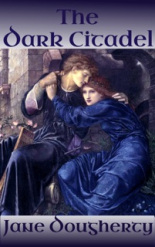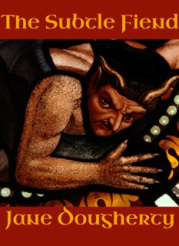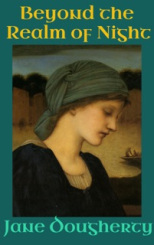guest post | the importance of mythology by author jane dougherty
- Ali Isaac

- Jan 9, 2015
- 4 min read
Updated: Sep 5, 2020

Ali has asked me to write about the importance of mythology in my writing, and what exactly it is doing in the near-future dystopia of The Green Woman series. I have heard it said that every fantasy world, if it is to be taken seriously as a rounded, realistic proposition, has to have references to religion. No real society can exist without religion. That’s as may be. But without wanting to pick a fight over it, I’d say that no society can exist without stories. There has to be a collective imagination to bind people together, a system of common shared beliefs. In older, pre-Christian societies, stories, religion, and history were more or less interchangeable. Some cultures have stories that represent a world-view that I personally find more appealing than others.
When I was a child, my maternal grandmother would go back to Ireland a couple of times a year, usually out west where her own mother came from. She always went alone, to the wildest parts of Sligo, Mayo and Clare, where she took photos of cliffs and pouring rain and landscapes of rolling bog and heath. She used to climb Croagh Patrick for the view, never did the stations. And she always brought us back books. One of my most treasured and most often read possessions was a copy of Irish myths and legends edited by Seán Ó’Faoláin. I loved those stories for their verve and passion: because there were lots of girls and women in them; because they weren’t supine, they were dangerous; and because the love stories were not romances. They ended badly as often as not, without melodrama or high tragedy, but often in a vengeful blood bath. Something you can relate to when you’re an under-ten.
In our house and at school to an extent, legends and stories were Irish. Mythology tended to mean Greeks and Romans. The world-view of those poor benighted people was cruel and misogynistic, with gods and goddesses who behaved like petulant children playing with the antique equivalent of nuclear missiles. I pitied them.
When I was older, I was very much drawn to Robert Graves’ interpretation of the beliefs of ancient societies, and I have tried to adapt some of his ideas into the fundamental ethos of The Green Woman. The very earliest societies, Graves argued, before paternity as a biological fact became established, were matriarchal. Women controlled the birth of children, the growth of the crops, and knew about the properties of plants. Women could make magic, because all of this power was magical. Men were useful members of society for their muscles. He also hints that possibly women were well aware that once men realised the part they played in reproduction, the female mystique would be harder to maintain. Once brawn took over from brain, we would see the development of conflict and aggression. And we do see it today in almost every society in the world.
When I created the utopia of the Garden (which is a nod and a wink to the Garden of Eden as it might have been if God hadn’t interfered) I wanted to go back to a hypothetical age of innocence, where birth, growth, nurturing and protection were more important than beating the brains out of your neighbour—or casting your children into the outer darkness, come to that. Transposed to a modern society it would mean wiping out cultural prejudices and taboos, and treating each individual as a unique member of society, not a reproduction of a type.
It is this kind of world Deborah proposes to the people of Providence. To help convince them, she brings back the memories, essentially the stories, of a time when we were closer to nature and further from the aggression that has come to typify the human species. Given what we know of Providence, its cruelty, police brutality, religious and civil oppression, and its all-pervading ignorance, you’d think they would have jumped at the chance. But human nature hangs onto what it knows, and no group likes relinquishing power. Without giving away too much of what happens at the end of the trilogy, I think I can say that she has an uphill struggle.
Myths, legends, stories, history, language, are what bind a culture together. They give us common points of reference, something to talk about, something to differentiate us from the rest. That is why I believe they are fundamental to any world we care to imagine, the backbone that supports the rest of our culture. If you go back far enough, you will find stories and beliefs that have little in common with the rapists and torturers of Greek myth, but instead see meaning in rocks and mountains, the sun and the moon, rivers and animals. Rather than cruel gods with very human failings, the earliest peoples venerated concepts: purity, the power of the elements, motherhood, wisdom, the cycle of life and death. To me it seems that we, modern, sophisticated people that we are, could do worse than try and recapture a little of the wonder our distant ancestors felt at the sight of waves crashing on a silver strand or a white doe on a hill.

Jane can often be found on her blog, on her FaceBook author page , or tweeting. You can find her books here, and here. You can read an excerpt of The Dark Citadel, first book of The Green Woman Trilogy, and see my review here.
Jane said something here on my blog last time she visited, which I haven’t forgotten. She said “We have similar influences, Ali and I, both steeped in the magic of Irish legend and history. Culture is like a genetic marker; it finds its way into our writing, inviting itself in even when it wasn’t asked.”
I think this is very true. Those Irish heroes of the past and their stories have found their way into our hearts and cannot now be denied. I am proud to be able to bring them to life in my writing. Thank you, Jane, for joining me on my blog today, and sharing what our heritage and mythology means to you, and how it inspired your creation of The Green Woman Trilogy.










Comments